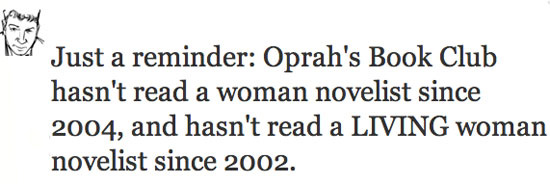Colum McCann’s Hand-Picked Stories

Early in his introductory remarks last night, Colum McCann recalled a bit of literary insight another writer had passed on to him: The Irish were brilliant short story writers, he’d been told, because they had practice going to confession. (It was true, he added, describing how he’d catalogued all sorts of imaginary sins rather than tell the priests what he’d really done.) But the stories he chose to present for an evening of the “Selected Shorts” series at Symphony Space were only “confessional” in the broadest sense of the term. It began with McCann’s own brutally suspenseful “Everything in this Country Must,” read by Amy Ryan, followed by Mary-Louise Parker’s hilarious but poignant treatment of Anne Enright’s “(She Owns) Every Thing.” And then, after a brief intermission, Michael Cerveris read Nathan Englander’s haunting “Free Fruit for Young Widows,” which held the audience riveted in silence for something close to half an hour.
Selected Shorts host Isaiah Sheffer had mentioned in his opening remarks that McCann had needed some persuading to commit to the evening, as he’d really been meaning to take time off from all the extracurricular aspects of the literary world and just sit down and write for several months. But I know the audience was grateful that he decided to spend one more night sharing three amazing stories with a few hundred of us—many of whom, as the photo above suggests, were eager to thank him directly afterward.
9 December 2010 | events |
Oprah Winfrey’s Book Club for Men

When the news broke that Oprah Winfrey’s book club was following up Jonathan Franzen’s Freedom with a double shot of Dickens (Great Expectations and A Tale of Two Cities), it got me to reflecting once again: Does it matter that Oprah’s Book Club hasn’t read a novel by a woman writer since Pearl Buck’s The Good Earth, and that they haven’t read a contemporary novel by a woman since Ann-Marie McDonald’s Fall on Your Knees? I got a lot of feedback when I raised this issue on Twitter; a few people took the “it’s her club and she can pick what she wants” tack, and others rightly pointed out that it’s not as if Winfrey hadn’t had any women writers on the show, but most were disappointed at the imbalance. As Washington Post book critic Ron Charles pointed out, it’s hard to imagine putting together a lineup of the most significant contemporary fiction writers that isn’t predominantly female.
So I had another look yesterday afternoon at a book I’d read earlier this year, Bring on the Books for Everybody: How Literary Culture Became Popular Culture, to focus my thoughts on the Book Club issue. (Full disclosure: Jim Collins was my college mentor.) I’m particularly interested in the way, as Collins puts it, “Oprah functions as an authority on reading for an imagined community of self-cultivators that numbers in the hundreds of thousands and who come to her expertise within the heart of consumer culture.” With so many books to choose from, how does a reader who aspires to be “literary,” or at least “well-read,” decide where to start? That’s where Winfrey comes in—and the particular genius of the Book Club’s 21st-century incarnation is that it combines the original (pre-Corrections) emphasis on the emotionally sublime power of “great books” with an emphasis on the symbolic credibility of “Great Books.”
And that leads directly to why I feel the absence of women writers in the Book Club matters.
7 December 2010 | theory |

 Our Endless and Proper Work is my new book with Belt Publishing about starting (and sticking to) a productive writing practice.
Our Endless and Proper Work is my new book with Belt Publishing about starting (and sticking to) a productive writing practice. 
